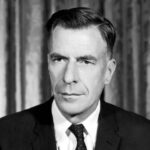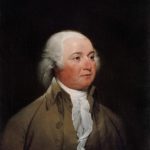Unit 1 - The Definition of Money
Learning Objective: Understand and be able to explain the origin and function of money and define what money is.


1.1 The Origin of Money
The origin of money is a subject with varying perspectives. The two main views come from economists and anthropologists:
- Economic Perspective:
According to economists, money originated as a medium of exchange to address the fundamental issue of barter economies—the double coincidence of wants. This problem arises because, in barter, two parties must each have what the other desires at the same time. Money solved this issue by providing a universally accepted medium, making trade more efficient and less reliant on finding a perfect match between two parties.
- Economic Perspective:
- Anthropological Perspective:
Anthropologists suggest that money originated primarily as a unit of account, serving as a means of keeping track of debts and obligations. Early communities used money-like systems to record who owed what to whom, turning money into a social accounting tool long before coins or notes appeared. This perspective emphasizes money’s role in maintaining trust and social stability within a community.
- Anthropological Perspective:
1.2 The Definition of Money
Money is typically defined by its ability to perform three core functions: as a store of value, unit of account, and medium of exchange—which can be remembered by the acronym SUM. Additionally, money should be something that requires work to produce, contributing to its perceived value.
- Store of Value:
A commodity or asset that retains its value (or purchasing power) over time, enabling people to save and defer consumption. For money to serve as a store of value, it should not degrade or lose its worth quickly. - Unit of Account:
A standard measurement used to express the value of goods and services. This function allows for clear pricing, accounting, and comparison of economic value across time and space. - Medium of Exchange:
Any item that is widely accepted in exchange for goods and services. Money makes transactions easier by eliminating the inefficiencies of barter systems.
- Store of Value:
Characteristics of Money as a Unit of Account:
For money to function effectively as a unit of account, it must possess certain properties:
- Divisibility: It can be broken down into smaller units to facilitate transactions of varying sizes.
- Fungibility: Each unit is identical in value, making it interchangeable with other units of the same amount.
- Accountability: Its value can be consistently measured and tracked.
Additionally, for something to act as a store of value, it generally must require effort or resources to produce. This ensures that money cannot be created too easily, preserving its scarcity and value. Historically, this has meant that commodities like gold or silver—requiring labor to mine and refine—were often used as money.
Definition of Money:
Based on these attributes, money can be defined as anything that functions as a store of value, unit of account, and medium of exchange, and requires effort or work to produce.
Conclusion:
Money is one of humanity’s most important inventions, enabling trade, cooperation, and economic growth. From its origins in barter systems to its modern forms, money has evolved to solve the problem of facilitating exchange and measuring value.
We explored two main perspectives on the origin of money:
- The economic perspective, which emphasizes money as a medium of exchange to overcome the inefficiencies of barter.
- The anthropological perspective, which views money as a unit of account used to track debts and maintain trust within communities.
We also examined the three core functions of money—a store of value, a unit of account, and a medium of exchange—and discussed how effective money requires characteristics like divisibility, fungibility, and accountability to serve these roles.
Finally, we emphasized the importance of work in establishing money’s value. Historically, commodities like gold and silver gained acceptance as money because they required labor to extract and refine, making them scarce and resistant to easy duplication.
Key Takeaway:
Money is more than a tool for exchange—it is a social and economic foundation built on trust, work, and scarcity. Understanding its origins and core functions helps us better evaluate modern monetary systems and their impact on economies and societies.